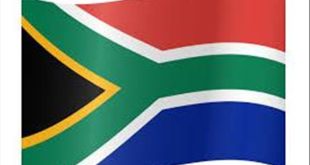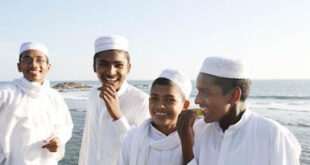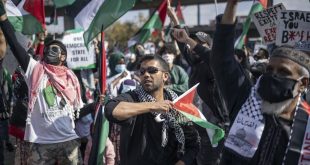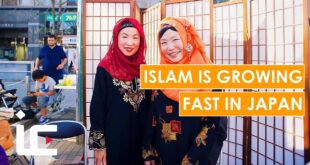 Almighty Allah – Glorified and Exalted is He – says, {O mankind, indeed We have created you from male and female and made you peoples and tribes that you may know one another} (Al-Hujurat 49: 13).
Almighty Allah – Glorified and Exalted is He – says, {O mankind, indeed We have created you from male and female and made you peoples and tribes that you may know one another} (Al-Hujurat 49: 13).
In light of this noble Qur’anic verse, it can be claimed that among Almighty Allah’s Bounties bestowed on Africa is the multiplicity of its tribes and its ethnic diversity.
For, ethnicities in some countries add up to three hundered (in a country like Nigeria, for instance).
This is undoubtedly a blessing for the Muslim Ummah, as it extends the circles of ‘knowing one another’ and enhances the opportunities of mutual communication in every new area a Muslim treads.
In this sense, any attempt to investigate the identities of the Muslim people in Africa and realize the extent of the Islamic impact on it is an encouraging one. For, it is a – hopefully – blessed step in the Islamic project of ‘knowing one another’ that is stated in the above quoted verse. It also leads towards rapprochement, cohesion and solidarity among the peoples.
Different definitions of identity agree that the term denotes “specificity and difference from others, be it individual or collective specificity”.
And perhaps the best definition of Islamic identity is that provided by Khalid al-`Ani, who described it as “belief in the creed of this Ummah, priding oneself on belonging to it, respecting its cultural and civilizational values, maintaining Islamic rituals, boasting of adherence to it, having a feeling of individual and collective distinction and independence, observing the binding duties of the (Islamic) Message and the obligation of conveying it and being witnesses over the people”.
Such definition is the objective, which the present article seeks to clarify some of its aspects relating to the African Muslim’s identity, be it an individual or a collective identity.
It is necessary to invest the organic relation between Islam and the African Muslims’ identity for the purpose of maintaining the mutual ties between them and the Arabs on one side, and the Muslim peoples, on the other.
And if researchers have determined the constituents of identity as the following five; religion, history, homeland, language and culture, then it means – among other things – that identity is a blend of fixed and variable characteristics that define the identity of the individual or of the community.
Islamic Identity in Africa
Muslims in Africa, particularly in the West in (which is the focal point of the present article), have developed an early awareness of their Islamic identity, and of the necessity of distinguishing it from other identities, since the embryonic stages of Islam in the African countries.
This is manifested, for instance, in the writings of al-Bakri (Abu `Ubaydah, d. 487 A.H.) about the capital of ancient Ghana, regarding its division into two sub-capitals, one for the king representing the idolatrous city, yet having a mosque for Muslims – in case they would visit the king -, and another for the Muslims, containing twelve mosques.
Al-Bakri also points out that Muslims were not bound to kneel before the king upon saluting him, as it was sufficient for them to clap their hands; “so, if the followers of his religion approached him, they would kneel down and sprinkle dust on their heads. Such was their salutation to him.
As for Muslims, their salutation to him is by clapping their hands”.
Undoubtedly, this status that Muslims then enjoyed, given that they had been a minority, in the ancient Ghanaian circles, did not obtain haphazardly.
Rather, it grew out of a profound awareness, and a sure care on part of Muslims for the necessity of the preserving their identity, and in turn giving expression to such awareness and demanding the preservation of it.
Al-Bakri also introduces another report which indicates Muslims’ eagerness to preserve their identity, saying about the Kuku people (Al-Bazarkaniyyin) that they “would not enthrone as a king over them other than a Muslim … and if one of them was enthroned, a ring, sword and Mushaf [copy of the Glorious Qur’an] would be presented to him, which was – they then alleged – was sent to them by the Commander of the Believers”.
Hence, there was – first – a strict choice of the chief, who was considered the primary person in charge of identity preservation, and – second – according to Al-Bakri, an allegation of a link between the rulership manifestations and ancient Islamic source.
This awareness about identity and eagerness to preserve it has led to the spread of Islamic culture, and non-Muslims’ respect for the values of Islam.
For, a report by is quoted by Al-Bakri about an idolatrous Sudanese king in the Faras lands, where there had a desire-stimulating herb.
When that idolatrous king was asked by his neighboring Muslim king for some of these herbs, he apologetically refused to do so on the plea that he feared the Muslim king should commit something forbidden in his religion under the influence of such excessively stimulating drug.
So, whether such was a mere polite rejection on the part of the idolatrous king, or a careful respect on his part for Islamic values, it reveals that an Islamic culture had been prevalent since that early period of Islamic existence in Western African countries.
Manifestations of Islamic Identity among African Muslims
In a humble attempt to explore some of the manifestations and constituents of Islam among African Muslims, it would be sufficient here to confine our focus to snapshots from the history and culture of some Western African tribes, like the Hausa, the Fulani, the Manding and the Wolof, since it is impossible to encompass them all in the present article.
First: The claim of being a descendant of the noble Prophet, the Companions or the Arab tribes:
Claiming to be a descendant of the noble Prophetic lineage, or of the Arab tribes, is one of the most revealing pictures of the excessive desire among the Africans to link their identity to Islam and its symbolic figures.
For, the “Cherifo” and “Haidarah” noble masters enjoy a unique social status in the African milieu that lends them a sanctity and entitles to them spiritual leadership in the community.
Next to affiliation with the noble Prophetic lineage is being a descendant to one of the noble Companions or to an Arab tribe close in lineage or connected to the noble Prophet,the particular point with which almost all African tribes grappled.
Perhaps the leaders and Sultans were the first to engage and open the door for such affiliation, which includes the following kingdoms:
1. Islamic Kingdom of Ghana: It is considered as the oldest known kingdom in the lands of the Sudan whose kings are reported to have claimed descending from the Alawi lineage, as is mentioned by Al-Idrisi (d. 560 A.H.) within his description of Ghana, “It is the heaviest of the Sudanese lands in terms of falling rain, the most populous, of the largest market places … Its people are Muslims, and its king is – among his titles – a descendant of Salih ibn `Abdullah ibn al-Hassan ibn al-Hassan ibn `Ali ibn Abi Talib”.
2. Kanem-Burno Kingdom: Kanem Sultans claimed `Affani lineage, that is claimed affiliation with Caliph `Uthman ibn `Affan, since the rise of the Sultanate.
This point is mentioned by Arab historians, as it was reported by al-`Umari (d. 749 A.H.) that “the first to spread Islam therein was al-Hadi al-`Uthmani, who claimed to be a descendant of `Uthman ibn `Affan. And after him, the Sultanate was entitled to the Yazinis, from Banu Yazin, under whose rule justice was administered, and whose Madhhab was that of Imam Malik”.
3. Mali Kingdom: The kings of the Islamic Empire of Mali claimed affiliation with the Companion Bilal ibn Rabah, calling him ‘Bilali Bunama’ and alleging that he was an ancestor of a Keita king in the Manding Kingdom. For, they were seeking legitimacy and entitlement to rule.
Indeed, the sharpest weapon in our hands today is persistent work towards enforcement of the Muslim peoples’ relation to their faith.
Thus, in the manner of the royal families, African tribes hastened to declare their affiliation with the Companions and the Arab tribes.
Examples to this also include the Fulani tribes that allege in local oral narratives their descent from the conqueror of Africa, `Uqba ibn Nafi`, who is reported in these narratives to have penetrated deeply into Africa until he reached the bend in the Niger river and the estuary of the Senegal river (the home of the Fulani tribes).
Some Fulani tribes also allege their descent from Halima as-Sa`diyyah, the foster mother of the Prophet (peace and blessings be upon him), calling her ‘Fula Ma’, meaning the Fulani Halima, weaving narratives about her in relation to the birth and breastfeeding of the Prophet.
Like the Fulani tribes, the Yoruba tribe in Nigeria and in modern-time Benin, claim affiliation with a legendary hero, namely Khosrau, who is said to have emigrated from the East and to have found the Busa Kingdom.
Similarly, Sarangkuli tribes claim descent from Salman al-Farisi [Salman the Persian], while the Hausa connect with a legendary hero called Bayajida ibn `Abdullah, from Baghdad, whom they claim had been a king there before he came to the lands of Sudan invading the idolatrous Zaiduwa tribes and dispersing them into forty sub-tribes.
Among these sub-tribes, they claim, was Bornu, whose king, seeking to secure his own throne, married his daughter to Bayajida. The new couple were gifted with a child that Bayajida named Burkimo, who came to be the first king of the Hausa lands, and the ancestor of the Hausa people.
Besides, Khosroes myth is widespread in the northern Hausa lands, in Gwari, Dakakari and Kontagora, where they claim Khosroes to be the founder of the Hausa kingdoms, maintaining that he had come from Egypt or from the east (Makkah).
To Be Continued…
Source : http://www.onislam.net
Post Disclaimer | Support Us
Support Us
The sailanmuslim.com web site entirely supported by individual donors and well wishers. If you regularly visit this site and wish to show your appreciation, or if you wish to see further development of sailanmuslim.com, please donate us
IMPORTANT : All content hosted on sailanmuslim.com is solely for non-commercial purposes and with the permission of original copyright holders. Any other use of the hosted content, such as for financial gain, requires express approval from the copyright owners.
 Sri lanka Muslims Web Portal Sri Lanka Muslims News Center
Sri lanka Muslims Web Portal Sri Lanka Muslims News Center
 Donate
Donate


